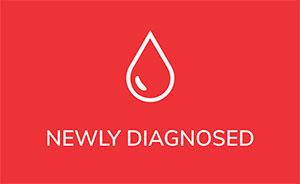At the first International European Research Initiative on CLL (ERIC) meeting held in Barcelona, Spain, there was much talk about MBL or Monoclonal B-cell Lymphocytosis, a possible precursor to CLL.
I asked Dr. John Seymour of the PeterMac in Melbourne, Australia to explain the basic concepts.
Takeaways:
- All cancer including CLL is clonal, in other words, it is made up of identical cells.
- If one has ≥5,000 monoclonal B-cells that are typical of CLL, then chronic lymphocytic leukemia can be diagnosed.
- If one has < 5,000 monoclonal B-cells, the diagnosis is MBL.
- The clonal cells in both diagnoses are the same and the 5,000 value is admittedly arbitrary.
- MBL consist of two groups:
- Low-count MBL has blood B-cell counts <0.5x9 cells/liter.
- High-count MBL has blood B-cell counts ≥0.5x9/L but <5×109/L.
- Low-count MBL does not progress to malignant disease.
- High-count MBL does progress at a rate of 1-2% per year.
- Both MBL and CLL patients have impaired immunity that puts us at a higher risk for infections and cancer.
- Even when diagnosed with CLL, many of us can have a normal life expectancy.
Please enjoy my interview from ERIC 2018 with Dr. John Seymour.
Here is a 2015 lecture that Dr. Kay gave on MBL and early care in CLL: https://cllsociety.org/2015/07/crc-2015-dr-neil-kay-on-prognostic-indicators-and-standard-early-care-for-cll-chronic-lymphocytic-leukemia/
Thanks for watching and reading.
Brian Koffman MDCM (retired)

















